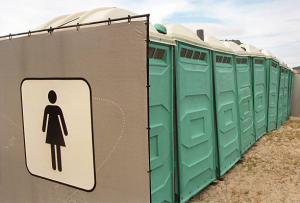By now, more and more prices have been announced for the 2023 festivals. I was quite shocked by the price increases, with some festivals rising harder than others. A nearby three day-festival went from $273 (€255) to $321 (€300), a price increase of almost 18%.
One question that came to mind was why music festivals are so expensive in the first place. In this blog, we list the most expensive festivals in 2023 and we will explore the various factors that contribute to the high cost of music festivals.
On this page:
- The 10 Most Pricey Festivals of 2023: A Global Overview
- Factors determining the price of music festivals
- 1. Costs of artists
- 2. Production costs
- 3. Security costs
- 4. Food and drink suppliers
- 5. Sanitary facilities
- 6. Costs of logistics
- 7. Live Nation and AEG Live as dominant force
- 8. Selling an overall experience costs money
- Are Music Festivals Getting Too Expensive? (Conclusion)
The 10 Most Pricey Festivals of 2023: A Global Overview
The table below provides an overview of the top 10 most expensive music festivals in the world with statistics on price increases in 2023. All prices are based on general admission weekend-tickets.
| Festival name | Location | Days | Price 2022 | Price 2023 | Price Increase (%) |
|---|---|---|---|---|---|
| Coachella | Indio, California, USA | 3 days | $474 | $549 | 15,8% |
| Lollapalooza | Chicago, Illinois, USA | 4 days | $350 | $350 | 0% |
| Glastonbury | Pilton, England | 5 days | $299 (£248) | $404 (£335) | 35,1% |
| Tomorrowland | Boom, Belgium | 3 days (2 weekends) | $262 (€245) | $316 (€295) | 20,6% |
| Austin City Limits | Austin, Texas, USA | 3 days (2 weekends) | $275 | $285 | 3,6% |
| Burning Man | Black Rock Desert, Nevada, USA | 8 days | $425 | $575 | 35,3% |
| Roskilde Festival | Roskilde, Denmark | 8 days | $324 (2250 kr.) | $346 (2400 kr.) | 6,7% |
| Isle of Wight Festival | Isle of Wight, England | 4 days | $223 (£185) | $260 (£215) | 16,2% |
| Rock Werchter | Werchter, Belgium | 4 days | $286 (€266) | $313 (€292) | 9,8% |
| Lowlands Festival | Biddinghuizen, The Netherlands | 3 days | $274 (€255) | $322 (€300) | 17,7% |
From the table, we can conclude that most festivals increased their prices. Glastonbury and Burning Man in particular have seen the hardest increases in prices, with increases of around 35% compared to the 2022 ticket price. Not all festivals participate in the hard increases in price though. Lollapalooza, for example, tries to minimize the price increase. Austin City Limits (ACL) also does not have a big price increase, compared to other similar festivals.
You should also consider any expenses for plane or train tickets, accommodation costs to stay overnight, travel insurance, food and drinks. Consequently, you will need hundreds of dollars extra on top of the festival ticket price, making festivals increasingly expensive.
DID YOU KNOW?
That the ticket price for Glastonbury, the UK’s biggest festival, cost 5 pounds in 1975? Also, back in the 90’s, a one-day ticket for Lollapalooza cost a mere $30 (about $40–43 in today’s dollars).
Factors determining the price of music festivals
There are all sorts of factors that decide how expensive a festival is. For example, costs are being made for licensing and obtaining numerous insurances. Besides that, there is often more involved in organizing and preparing a festival than we think beforehand. I came across an interesting video from The Economist that elaborates on this. Below are some of the key takeaways.
1. Costs of artists
The first factor to consider is the cost of hiring talented artists. Booking popular artists to perform at a music festival requires a significant investment. According to Pollstar, the average cost of booking a top-notch artist can range anywhere from $200,000 to $1 million or more. When you consider that most music festivals feature several high-profile artists, it’s easy to understand why the cost of talent is a major factor in the overall expense of the event.
2. Production costs
Another significant factor is the cost of production. From setting up stages and lighting to providing sound systems and security, the cost of producing a music festival is huge. According to a report by Eventbrite, the average cost of producing a music festival ranges from $1 million to $10 million. These costs include expenses for equipment rental, stage design and construction and sound and lighting systems.
3. Security costs
Security is one of the main costs that a festival has to bear, and it is an essential aspect to ensure the safety and well-being of the attendees. The security measures at a festival include hiring trained personnel, setting up metal detectors, establishing secure perimeters, and providing medical and emergency services. The expenses incurred in security can be substantial, and the larger the festival, the more significant the costs become of course.
4. Food and drink suppliers
What about food and drinks? Festivals need to provide a variety of food and beverage options to cater to the diverse tastes (including gluten-free or vegan for example) of the attendees. This requires a significant investment in purchasing or leasing equipment, such as food trucks, stalls, and refrigeration units, as well as sourcing food and drink supplies from reputable suppliers.

The festival organizers also need to factor in the costs of labor, including hiring and training staff to operate the food and drink stalls, as well as ensuring that the food and drink offerings meet relevant health and safety standards. All of these costs add up, and are ultimately passed on to the festival-goers in the form of food and drink prices. It’s not uncommon for festival-goers to pay a premium for food and drinks at festivals, as the festival organizers aim to cover the costs of providing these amenities and ensure that the festival-goers have a satisfying and convenient dining experience.
5. Sanitary facilities
Proper sanitation facilities are crucial for the comfort and well-being of festival-goers, and this is another cost that must be taken into consideration by festival organizers. Providing adequate restrooms and hand-washing stations for the expected number of attendees can be a costly undertaking. In a very hot summer, it is also important to have enough water points available. The festival organizers must either rent or purchase the necessary equipment and supplies, including portable toilets, sinks, and hand sanitizers.

They must also hire staff to clean and maintain the facilities throughout the festival, ensuring that they remain hygienic and functional for the entire duration of the event. The cost of providing sanitary facilities can be substantial, and festival organizers must factor in these costs when setting ticket prices, as they aim to recover their expenses and provide a comfortable and safe experience for the festival-goers.
6. Costs of logistics
Let’s not forget about the costs of logistics, which is also one of the most important factors in the high cost of music festivals. Managing the flow of thousands of festival-goers can be a complex and expensive task. There must be parking spaces, traffic controllers arranged and so on. Eventbrite found that on average, music festivals allocate approximately 15-20% of their budget towards security and logistics.
7. Live Nation and AEG Live as dominant force
There are two companies who are also responsible for the increasing festival prices: Live Nation and AEG Live. They have been pushing prices up and are buying all the smaller festivals. They now even own a third of the British market alone, making them a dominant force in the market. They spread the risk across multiple music festivals they own (or have bought over). This makes it difficult for independent festival organizers to secure big names for their festivals.
8. Selling an overall experience costs money
These days, a “music festival” has long ceased to be all about the music. People are looking for an unforgettable experience. A 10 year report survey conducted by the Independent Concert Association of the UK noted that only 8% of festival-goers use artists as the deciding factor to go to a music festival. A whopping 53% of festival-goers said that they go to music festivals because of the experience.
‘In the past 20 years, the western world has shifted from buying things to buying experiences.’
Lak Mitchell: Founder & Co-director Boomtown Festival
Festivals today offer all kinds of things, such as yoga sessions, actors’ performances, light and fireworks shows and much more. The more there is to do, and the more fun, the better the experience! Even if there is no interesting artist, so to speak.
Watch the full video from The Economist below:
Are Music Festivals Getting Too Expensive? (Conclusion)
In conclusion, the high cost of music festivals is a result of several factors, including the cost of talented artists, production, food and drinks, logistics, security, regulations, but most of all: selling a great experience. While these costs may seem steep, they are necessary to ensure that the event is successful, safe, and enjoyable for all who attend. If you are considering attending a music festival, be prepared to spend a substantial amount of money, but also remember that the experience is 100% worth it! You only live once… 😉
